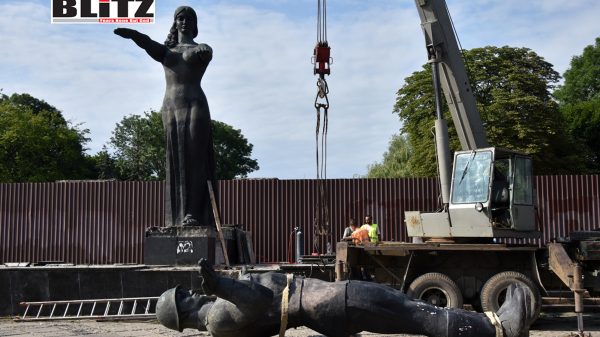Albania appoints world’s first AI government minister to tackle corruption
- Update Time : Saturday, September 13, 2025

In an unprecedented move, Albania has appointed the world’s first artificial intelligence-generated government minister, aiming to eradicate corruption and streamline public administration. The digital assistant, named Diella-meaning “Sun” in Albanian-has been advising citizens on navigating government services online since January. On September 11, Prime Minister Edi Rama formally introduced Diella to his cabinet, marking a historic moment in global governance.
Speaking at the Socialist Party assembly in Tirana, where he also outlined which ministers would continue in their roles and which would be replaced, Rama highlighted the uniqueness of Diella. “Diella is the first [government] member who is not physically present, but virtually created by artificial intelligence,” he said. The AI minister is expected to assume responsibility for all public tender decisions, a move designed to ensure transparency and eliminate human interference from one of the most corruption-prone areas of government.
“Every public fund submitted to the tender procedure will be perfectly transparent,” Rama asserted. He emphasized that the shift of decision-making from human ministers to Diella will be implemented “step-by-step,” but promised that eventually, Albania would have a system where public tenders are “100 percent incorruptible.” He further stated, “This is not science fiction, but the duty of Diella.”
Diella’s introduction comes at a time when Albania continues to grapple with longstanding issues of corruption, particularly in public administration and procurement. The European Union has repeatedly flagged these challenges in its annual rule of law reports, noting that opaque processes and favoritism in tenders remain persistent hurdles for the Balkan nation. By introducing an AI-driven minister, Albania hopes to demonstrate its commitment to reforms as part of its broader EU accession goals. Rama, who secured a historic fourth mandate in May 2025, campaigned on a promise to join the European Union by 2030.
The AI minister has already been familiar to the Albanian public through the e-Albania platform, which allows citizens to access nearly all government services digitally. Diella even has a visual representation, appearing as a young woman dressed in traditional Albanian attire. According to the government, the AI system is designed not only to evaluate tenders impartially but also to recruit talent from around the world, breaking down administrative inefficiencies and minimizing the influence of bias and bureaucracy.
“Diella will be entrusted with all decisions on public tenders, making them 100 percent corruption-free,” Rama said. He emphasized that the AI system will serve as “the servant of public procurement,” ensuring accountability and fairness in the allocation of public funds. This technological intervention is being hailed as a groundbreaking step in government innovation, potentially serving as a model for other countries struggling with corruption.
The Albanian government has described Diella’s role as crucial for modernizing the country’s public sector. By centralizing tender evaluation under an impartial AI system, the government aims to reduce opportunities for bribery, nepotism, and favoritism, which have historically undermined the integrity of public projects.
However, the move has also raised questions regarding accountability and oversight. Critics have expressed concerns over the delegation of such significant decision-making power to an AI entity. They argue that even the most advanced algorithms may not fully account for the nuances of legal and social contexts and warn that the system will require robust monitoring to ensure it functions fairly.
Despite these concerns, supporters highlight that Diella represents a forward-thinking approach to governance in an era of increasing digitalization. By leveraging AI technology, Albania hopes to create a public administration that is efficient, transparent, and resistant to corruption. If successful, this initiative could serve as a blueprint for other nations grappling with similar challenges, demonstrating that technology can complement governance in ways previously thought impossible.
As Albania moves forward with this ambitious experiment, the world will be watching closely. The introduction of Diella not only positions the country at the forefront of AI in governance but also signals a bold attempt to rebuild public trust in institutions long plagued by corruption. For Prime Minister Rama and his administration, the AI minister represents a symbolic and practical step toward a future where public funds are managed with complete transparency, offering hope for a more accountable and efficient government.
Please follow Blitz on Google News Channel
















